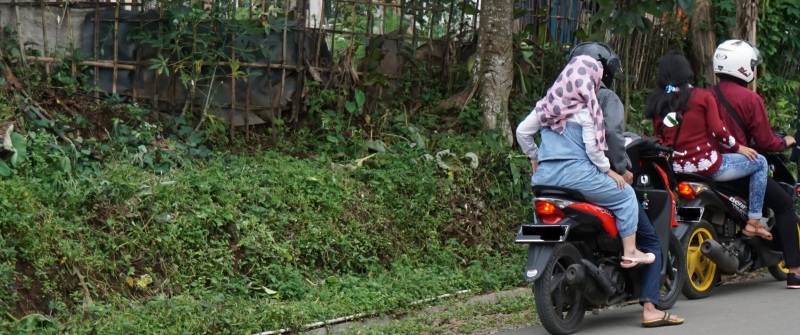
11 Oct Blog: Sex before marriage in Indonesia – whose business is it?
By Hoko Horii
Is child marriage a clear cut human rights violation? Ph.D. researcher Hoko Horii doesn’t think so. Based on her research into Indonesian courts, and her work with Indonesians living in the Netherlands, she shows us the reasons child marriage is not as clear cut as it may seem.
“Marriage is a solution to prevent free sex.” Ahmad Isomuddin, a member of Nahdlatul Ulama (NU), an Indonesian Muslim organization with more than 50 million members, made this statement at a hearing for a judicial review of the Indonesian Constitutional Court. This judicial review was requested to change the current minimum age of marriage– 16 for girls and 19 for boys. While the main plaintiff, the Foundation for Women’s Health (Yayasan Kesehatan Perempuan), argued that the minimum age should be 18 for both girls and boys, the Constitutional Court rejected this claim with an 8 to 1 vote – the only dissenting judge was the one and only female (and non-Muslim) . What is ‘free sex,’ why are Indonesians concerned, and what does this all have to do with human rights? Answering these questions is tricky, and requires us to move beyond static understandings of human rights.
The term ‘’seks bebas’’ – ‘free sex’’ – is frequently heard in Indonesia today. It is an Indonesian interpretation of liberal western values and the perceived sexual immorality of western societies. For most Indonesians, ‘’free sex’’ is morally disturbing, and is to be prevented. Issues surrounding “seks bebas” feature prominently in the Constitutional Court; more recently another request was submitted to the Court, which sought to criminalize any sexual relationship outside of marriage, including same-sex relationships.
I recently had an interview with some Indonesians who are studying in the Netherlands. Their views on marriage and sexual morality were enlightening. One of my informants stated, ‘’Our morality according to Islamic law is that sexual intercourse outside of marriage is a big sin, and unforgivable.’’ The other informant continued, ‘’So, discussing the minimum age of marriage for us Indonesians is like discussing the minimum age for having sex for Westerners, because in Indonesia one cannot have sex before marriage.’’
This reasoning reminded me of the interview I had with one of the judges in a religious court in West Java who said, ‘’Child marriage is increasing because of globalization.’’ He thinks that more young people have to marry early today because they start to be sexually active earlier than they used to due to the exposure to the Western norms and culture. It is true that in this rapidly modernizing Indonesia, the younger generation is caught between traditional values and an environment that is changing under the influence of the outside world.
‘’The current provision in the Marriage Law gives protection to children,’’ says the NU’s Ahmad Isomuddin.” A Judge stated that, ‘’We grant marriage dispensation [parents can petition the courts to let their underage children marry] to protect children from social stigma.’’ Strange as this logic may seem, if I try to look at the issue through their glasses, I see marriage as a shield which can protect children from the social stigma associated with premarital sex, thereby allowing them more freedom. But when I look at it through the lens of ‘’Human Rights,’’ I see child marriage being associated with the loss of educational opportunity, reproductive health, economic independence, and autonomy. To me, it seems that both Islamic conservatives and human rights advocates take a one-sided view. What is ‘’child protection?’’ What are ‘’children’s rights?’’ What does it take to ‘’protect children?’’ In order to answer these questions, I have to take off all of these glasses. Marriage could be the young people’s own choice, and marrying young is in and of itself not a vice. What could be harmful for a child’s future and wellbeing are some of the consequences of marrying young. Children are better protected when they are free from those consequences, not when they are forbidden from marrying before the age of 18.
(Hoko Horii is a PhD researcher at KITLV and Van Vollenhoven Institute(2016). Her research tries to understand the reasons behind the persisting gap between international human rights standards and social practice regarding child marriage in Indonesia, focusing on the co-existence of conflicting norms within the Indonesian legal system).
Photo: Izmy Khumairoh




Lisa Woodward
Posted at 08:39h, 26 OctoberInteresting research! I have just been in villages where marriage seems to occur at a younger age because the female has become pregnant before marriage – usually around 17 or 18 years old – and abortion is not an option.